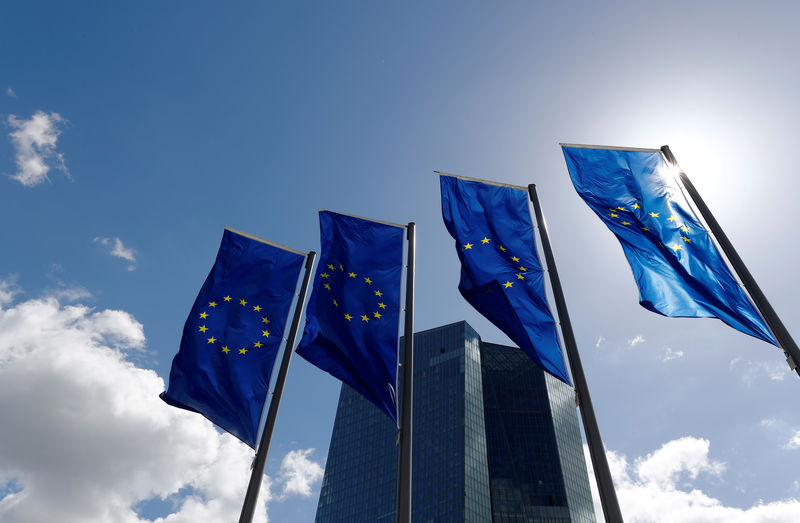By Francesco Guarascio
BRUSSELS (Reuters) - Euro zone economic sentiment deteriorated in October for a second straight month, data showed on Wednesday, as pessimism in industry spread to services and consumers in a bad sign for the bloc's growth prospects.
The European Commission said its main indicator for economic sentiment in the 19-country currency bloc fell to 100.8 points in October from 101.7 a month earlier and 103.1 in August.
The fall was bigger than market consensus of 101.1 points in October, and brought the indicator to its lowest point since January 2015.
Pessimism in industry worsened to well below the long-term average, as the export-driven sector feels the impact of global trade wars.
In October the gloom spread also to the much larger services sector and to consumers in a sign of possible spillover from the crisis in manufacturing.
That could have negative fallouts on the euro zone's economic growth that has already been slowing this year mostly because of weakening production.
Economists polled by Reuters already forecast euro zone economic growth will drop to 0.1% in the third quarter from 0.2% in the previous one. The EU statistics agency Eurostat will release official estimates on Thursday.
Sentiment in services, which account for two-thirds of the euro zone economy, was positive in September despite the overall pessimism, but eased to 9.0 points in October from 9.5 the month before. This is the lowest level since June 2015.
The mood turned sour also among consumers, triggering a drop also in sentiment in the retail sector, where sentiment fell into negative territory for the first time since July.
Consumers in October expected higher prices in the coming months, which could partly explain their worsening sentiment.
That would be positive news for the European Central Bank which is struggling to raise inflation closer to its target of nearly 2%.
However, selling price expectations among industry and services managers remained largely unchanged.

In a separate release, the Commission said the business climate indicator, which points to the phase of the business cycle, rose to -0.19 points in October from -0.23 a month earlier, against market forecasts that it would have dropped further in negative territory to -0.24.